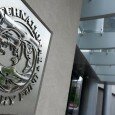By Khalid Mustafa –
As if it was not enough of an ordeal to cope with truant power, the suspicion you had about excessive billing turns out to be true
How would you feel if you were forced to pay for electricity beyond the 12-month calendar? Never mind how you feel. Because you’re probably already being cheated by the state — without your knowledge. On average, consumers end up paying electricity bills for 13-14 months a year — an arithmetic owed to excessive billing of about 20 percent (more than Rs100 billion annually) — to ward off financial pressures on the government.
According to Shahid Sattar, Energy Member Planning Commission, excessive billing has long been in vogue to hide line losses and power theft. He agreed it is tantamount to punishing scrupulous consumers, who pay their bills regularly. Sattar disclosed the inefficient power sector had siphoned off a staggering Rs380 billion in 2011-12, and the recovery rate of the dues stands at just 65 percent.
However, the government claims the recovery of electricity bills stands at 86 percent which, however, does not stand up to scrutiny. He said the electricity power distribution companies in the last financial year 2011-12 braved a colossal Rs114.194 billion on account of excess losses and low recovery of bills.
“To offset this impact, the poor consumers are excessively billed with almost the same proportion,” he disclosed.
According to the latest findings pertaining to the losses of electric power distribution companies (Discos) as of June 30, 2012 in the wake of line losses and low recovery, Lahore Electric Supply Company (Lesco) sustained a loss of Rs8.707 billion in 2011-12; Gujranwala Electric Power Company (Gepco) Rs1.506 billion; Faisalabad Electric Supply Company (Fesco) Rs1.439 billion; Islamabad Electric Supply Company (Iesco) Rs3.133 billion; Multan Electric Power Company (Mepco) Rs6.602 billion; Hyderabad Electric Supply Company (Hesco) Rs12.912 billion; Sukkur Electric Supply Company (Sepco) Rs20.939 billion; Quetta Electric Supply Company (Qesco) Rs23.448 billion; and both Peshawar Electric Supply Company (Pesco) and Tribal Electric Supply Company (Tesco) endured losses of Rs35.507 billion, which is alarmingly high.
“Since consumers raise questions and dispute excessive bills, many of these bills are later revised, but the excessive amounts billed continue to appear as trade debts”
Sattar belied government claims about current line losses at 19.5 percent, which he said, are actually 22-23 percent. He alleged all the Discos are involved in exposing unsuspecting consumers to excessive billing — just to keep the line losses at the official level of 19.5 per cent on average.
“Some unscrupulous and influential officials in electric power distribution companies who help commercial and industrial establishments steal electricity and make illegal money in return, send inflated bills to hide the losses to some extent the system faces in the wake of electricity theft and line losses,” Sattar revealed.
“The consumers are mainly exposed to excessive billing in the summer months, particularly May and June every year,” he said.
Sattar said the billing system is still based on COBOL (programming language system that had become obsolete in the 90s) using data from flat files.
He said under this system, the electricity bills can be manipulated easily. The billing data base system of the Water and Development Authority (Wapda) Lahore was developed in 1968. Later in 1986, the first integrated billing system was deployed. The same system is being persisted with barring a few enhancements from time to time.
However, in 1985, in order to cope with the unbundling of Wapda, regional data processing centres were developed in various centres. However, the main processing of the billing is still carried out by the central computer centre in Lahore.
He pointed out that the control mechanism of verification of billing and line losses is very difficult to implement under COBOL system.
The government is reportedly planning to replace the COBOL with modern MIS (management information system) to avoid manipulated inflated bills to the consumers.
 However, an official letter Ahmad Rafay Alam, Chairman of Board of Directors Lahore Electric Supply Company, sent the Zafar Mehmood, Secretary Water and Power, on July 14, 2012 — a copy of which is exclusively available with Pique —lends credence to excessive billing disclosed by the Member Energy Planning Commission.
However, an official letter Ahmad Rafay Alam, Chairman of Board of Directors Lahore Electric Supply Company, sent the Zafar Mehmood, Secretary Water and Power, on July 14, 2012 — a copy of which is exclusively available with Pique —lends credence to excessive billing disclosed by the Member Energy Planning Commission.
The letter pointed out that in the jurisdiction of Lahore Electric Supply Company (LESCO), in November 2011, incidents of excessive billing in Kasur came to the notice of Customer Service Committee of the Board of Directors.
The letter reveals that audit by the manager (internal audit) was presented to the Audit Committee of Board of Directors of LESCO in its first meeting held on April 28, 2012 showing that up to December, 2011, excessive billing to the tune of Rs6.79 billion was resorted to for making up line losses in the first instance and later to reduce the arrears as well as temporarily, redress consumer complaints.
In the letter, Alam goes on to divulge that the Audit Committee directed the manager (internal audit) to carry out the audit of all circles of LESCO along the same lines as the audit of Kasur circle. The findings of the same will be available in a few weeks.
Preliminary reports indicate that for Okara circle, excessive billing for the period July 2011-March 2012 in the region stands at Rs420 million. So it has become clear to the BoD that excessive billing is standard fare to hide line losses from National Electric Power Regulatory Authority and the Ministry of Water and Power.
“Unscrupulous and influential officials in electric power distribution companies who help commercial and industrial establishments steal electricity and make illegal money in return, send inflated bills to hide the losses the system faces in the wake of electricity theft and line losses— Shahid SattarEnergy Member,Planning Commission”
Since consumers raise questions and dispute excessive bills, many of these bills are later revised, but the excessive amounts billed continue to appear as trade debts. The trade debt of Lesco has swelled to Rs16.11 billion in January 2012.
In his letter, Alam also brought to the notice of Ministry of Water and Power how the Punjab government and its attached departments, which owe Rs7 billion to Lesco, declined to pay the same on the premise that they had been excessively billed due to defective metres and other reasons. The BoD feels this disputed amount will most likely never be recovered.
Sattar also mentioned that USAID had implemented its pilot project — Blind Meter Reading (BMR) — in the jurisdiction of Peshawar Electric Supply Company (Pesco). The findings of the project show the consumers are lumped with 10-20 percent in excessive billing. Under this project, new metres had been installed and the discrepancies in the actual and reported load had been identified.
Initially, the losses of Pesco increased from 30 to 50 percent after the implementation of BMR Project. However, after discerning the factual position, actual metre reading and billing have been introduced, resulting in a decline in percentage losses.
Sattar feels the automated billing system can improve the overall revenues of the company as well as its financial health on a long term basis.
The writer is a journalist specializing in energy and water issues































































































